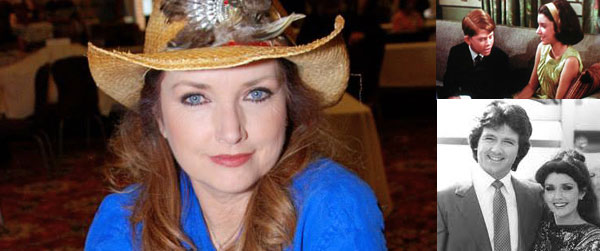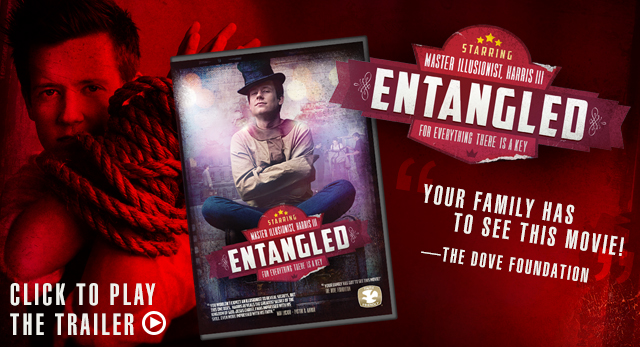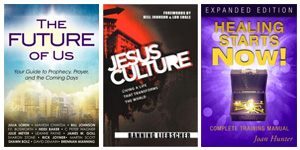Several friends have told me that Morgan Brittany was a person we needed to interview and a few months ago I had the opportunity to meet with her and quickly agreed. I knew right away this was someone to cover as she had quite a bit to say about what Christians are faced with in the mainstream entertainment world.
Fred: The first thing I am interested in is something we read in a story about you. How as a young starlet you came under criticism for wearing a cross.
Morgan: Yes, and that was in the seventies. You can imagine how much more difficult it is now. It is very odd, the first time that happened to me, it kind of blindsided me. I never thought that religion was an issue. I had grown up in the business in Hollywood and there never was an issue about religion. It was not talked about, nobody criticized you for it. I had no reason to believe that if I wore a cross that no one would care one way or another. This manager who wanted to represent me, came over to me and took it off my neck and said, “If we are going to work together, this has gotta go.” And I said, “What are you talking about?” He answered “You can’t be religious and Christian in Hollywood. You can’t flaunt it out there. If you are going to be a Christian, it has to be in silence. They get an impression of you that is not what they are looking for. I told him, “If that is the case then we can’t work together.” I left because I thought it was ridiculous, I was not going to hide my beliefs. I was not going to be silent, so I continued on my way.
Things worked out fine for me. I can’t complain, but now it seems to me that things have changed so much in the way of religion. A lot of actors and a lot of singers conveniently trot it out when they do award shows. Many of them that lead a life style or promote products that are very anti-Christian will stand up in front of their fans and say “Thank you God and thank you Jesus.” Yet they are putting products out that are completely against the teachings of the Bible and the teachings of Christ. I think they do it for a reason, I think they use it to get more fans because they know a lot of people in the country are religious. I see religion being used and I don’t like that. Granted, there are many believers as well, but sometimes it is very obvious when they are exploiting God for their own benefit. There are a lot of times in Hollywood when you get chastised if you are a true believer. Some of the Hollywood elites are very uncomfortable around you because they don’t know how to react to people who are true believers. The only thing they know how to do is attack you and make you the bad guy, make you the crazy person. We are considered Bible Thumpers. We are considered intolerant if we don’t go along with their beliefs.
Fred: Would you say this is why so many Christians are making independent films outside of Hollywood?
Morgan: I do believe that. If you look at the box office receipts there are many films that have good values, American values, family values, those are the films that are raking in the money. Those are the films people are flocking to see. The Avengers, Captain America, even action films where the good guys win. The industry understands where America is at, they just don’t like to admit it. Independent film producers are finding that when they have a really great project, sometimes the studios will pass on it if it has an agenda that they don’t agree with. Unless it is connected to someone who has a lot of clout and a lot of power in the industry. Then they will do it. The people who have faith based films, family value films have to find their money from other sources. They have to do a grass roots fund raising to get the money to back their project . Hollywood is just not behind it.
Fred: Now in your career as a child you were more prepared to be a singer or dancer were you not?
Morgan: Yes, that is true. When I was very very young my mother and grandmother put me into dancing and singing classes. I was basically a young performer that sang and danced. I was taught everything and groomed to be an all around triple threat performer. I worked consistently from the time I was five years old. My big movie musical was Gypsy. I played the child star Baby June when I was around eight years old.
Fred: As you grew older you changed your name from Suzanne Cupito to Morgan Brittany.
Morgan: As a child actor, at least back then, in the fifties and sixties, I had established myself as an adequate performer. Producers, directors, everyone knew me. As Suzanne Cupito. When I grew up, when I became a teenager, there were not that many roles. If they needed someone fifteen or sixteen years old they were going to hire someone eighteen or older so they didn’t have to deal with the school situation, the hours situation and all they had to deal with with a child actor. So my career tapered off and I really didn’t have any direction. I was very lost because my whole life up to that point had been as a successful working actor. At 16 I was suddenly thrown into a situation I wasn’t used to, going back to public school, dealing with kids my age for the first time, not making any money to support the family. It was very difficult for me. I was eighteen when I realized that the only way to survive was to completely change my image, change my name and move out of California. That was when I moved to New York City and became Morgan Brittany. I threw out my resume and my old life and started anew. It was very difficult to do, especially since all of my childhood had been the income of my family I had no nest egg to fall back on and literally had to start from scratch.
Fred: Well you obviously made a very successful transition. Now I have to ask you about Dallas. You really had a preference for film and originally were signed for just seven appearance on that show. They then decided they wanted you to be a regular.
Morgan: It was an interesting, because when they originally wanted to cast someone to play Katherine Wentworth they had no real picture of her. They knew she would be the half sister of Pam and Cliff Barnes, but they didn’t know what direction they wanted her to go in. Initially they wrote just a small description. She was a sixteen year old high school student who was basically a generic character. She wasn’t good, she wasn’t bad, she was just kind of there. I remember they auditioned all these girls in the hopes of finding the direction. They were hoping to find an actress who would walk in the door and when they saw her they could say, yes that is what we want. I didn’t want to go on the audition. I had just gotten married and just gotten back from Georgia. My agent called me to go on this audition and I was very hesitant and didn’t want to go.
When I got to MGM Studios the room was full of girls and it was a two hour wait. By the time I got into the casting session it was all producers, directors and casting people in the room. Back in 1981 there was no video tape so you did your reading in a room with everyone there. When I walked in I was very frustrated, I didn’t want to be there. I had waited two hours and I had an attitude. I was feeling “I don’t care about this”. I read the scene and then looked at them and said “Is that all you need because I have to go.” I then walked out of the office and in my entire life I had never done anything like that. I was concerned afterward about being so rude and called my agent to explain. He said “Don’t worry about it, they don’t really know what they are looking for anyway.” Evidently THAT was what they were looking for. That was the direction they had that character go. She was abrupt, no nonsense, had no patience, went after what she wanted and got it. They liked that.
They cast me for seven episodes. After the seven episodes were over I figured that was it, but the public liked that character so much they wanted to see more of her. The producers called and said they wanted to put me on contract. That is how I ended up doing four seasons of the show. It is amazing how things like that happen. It was a show that people really related to. When it first came on in the late seventies it really didn’t catch fire. It didn’t catch fire until the JR character started emerging. This man that everybody was fascinated with, Larry Hagman, emerged as this iconic character that everybody was attracted to. The show kind of perpetuated the “yuppie” movement and the need for status. The Ewings were wealthy, but they were “real”. The viewers could see that rich people were not always happy, that sometimes they had miserable problems and some of them were awful people who did awful things to each other. That kind of scenario attracted an audience that found it fascinating.
We have gone through a twenty year cycle where we are kind of reliving that same economic period. In the late seventies we were coming out of an economic disaster. High interest rates and long gas lines. People didn’t have work and things were bad. Well, we are in that same situation now. I think that the appeal of the new Dallas and Downton Abbey is kind of a repeat of the late seventies and early eighties. The writers in the original show initially were almost Biblical in their story lines. They told the story of the Ewing brothers, the good brother against the bad brother. If you look at the structure of that family it almost had Biblical overtones. That whole show was basically good against evil. Temptation in all of its forms. Yet the family stayed together. When it came down to the family needing to bind together, as a strong family they would do it. There was always conflict, but there was always that strength and backbone of the family. First it was Jock, then the catalyst was Miss Ellie, Barbara Bell Geddes, the mother.
Fred: You have been in a lot of popular TV shows and films. Are there any favorites you would like to comment on?
Morgan: I did a lot of shows in the sixties, I did three Twilight Zones that I enjoyed a lot. They were so simple, but they were so riveting in the way they were written and with Rod Serling being there. I loved doing The Andy Griffith Show. Walking into that situation was like walking home. It was comfortable, it was friendly. It was a happy experience. I really would have loved to have worked on that show on a weekly basis. If I could have picked anything I think I would have picked that show. Everyone was so wonderful I felt so at home.
I enjoyed doing all the shows in the sixties because they did have a moral to them. At the end of the episode there was a message to them. Even if I played a negative character there was always a lesson to be learned. I noticed as we got into the seventies and eighties things really changed. The agenda turned around and you could see subliminal changes and shake you head and wonder “what direction are they going?” There were still a lot of good shows and films in the eighties but they were guidelines. There were things you couldn’t do on television that would offend the viewing public. Now, they don’t care if they offend. They don’t care what they put on as long as it makes money. The business has shifted from an art form to a money making machine. There are of course some high quality things still out there. Some mini-series, some comedy shows that are good but, there are some that really horrific. Certain reality shows portray society and human beings as the lowest of the low. They promote bad behavior and perpetuate teen pregnancies and dysfunctional families. I feel bad because the young generation of kids growing up with all of this are being bombarded with negative material.
Fred: What advice would you give young Christians desiring a career in film and TV?
Morgan: I am an example of someone who fought agents, managers and directors and fought them for years and stood up for what I believed in. I didn’t compromise what I believed was right. I always looked into the future and would always consider what impact my decisions would have. What impact would it have on my family and on my children? Young Christians and young performers have to remember that nothing goes away. It is there forever. If you do nudity, if you do Playboy, if you do a sex film, if you do something you’re not comfortable with and yet someone is pushing you into it you need to beware. The biggest line that too many fall for is, “This will make you a star.” No, it won’t make you a star.
You may work, you may be lucky, but if you do something and it compromises your values, your inner heart and what you believe in and you go against that, nothing you ever do can get that back. It is very difficult to stand up for what you believe in, to let people know, “I’m not going to do that.” It is very difficult to see your peers rising in status and you’re still sitting back working your way up because you won’t do certain things. You have to be true to yourself. As a performer, as a human being you have to be true to yourself, because once you compromise, you sell out. Like I said, it will never go away; your children will see it, your family will see it, your friends will see it. You don’t want to live a life of “Oh if only I had not done that.” I see so many actors that are tormented with that. And so many of them turn to drugs, they turn to alcohol, sex addition, whatever it is to ease their minds. Trying to forget what they have done or how they sold out takes a heavy toll.
I really believe that young Christians can make a big difference in the entertainment business. The more there are that stand up and hold on to their values and hold on to their beliefs, they will get stronger and stronger and stronger. These are the performers who are going to start to turn the tide because people have reached the end, they have had it with being saturated with so much negativity and so much of a decadent life style being portrayed. Young Christians can pave the way as producers, directors, writers and performers and show an alternative to what Hollywood feeds us. People are looking for someone who will stand up. Look at Tim Tebow. They may demonize him, they may knock him down, and they may say, “Oh he’s this Christian guy, he’ll pray” and they’ll make fun of him, but he holds his head high and smiles. Realistically he is holding his values and people admire that.
Fred: Amen to that. Are there any current projects you would like to tell us about?
Morgan: You can go to my political website, http://politichicks.tv/ which has articles, interviews, current things we put there. People can find me on http://townhall.com/, I’m a columnist. I am trying to do as many things as I can for veterans. I feel that rather than doing something in the entertainment world these days, I’m working more politically now.






